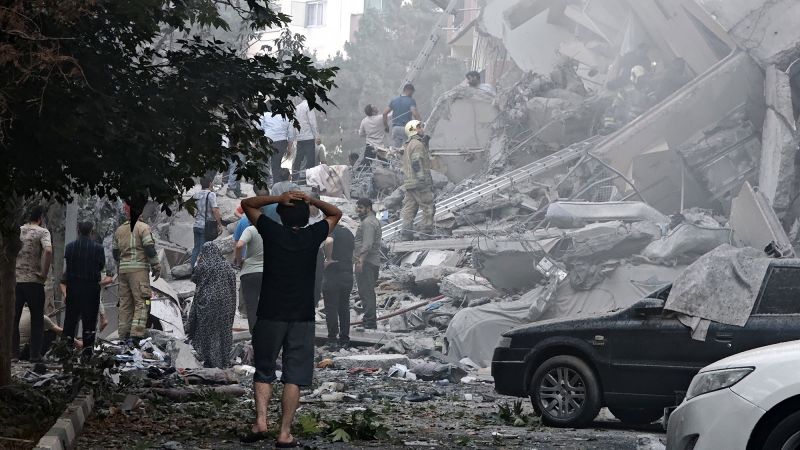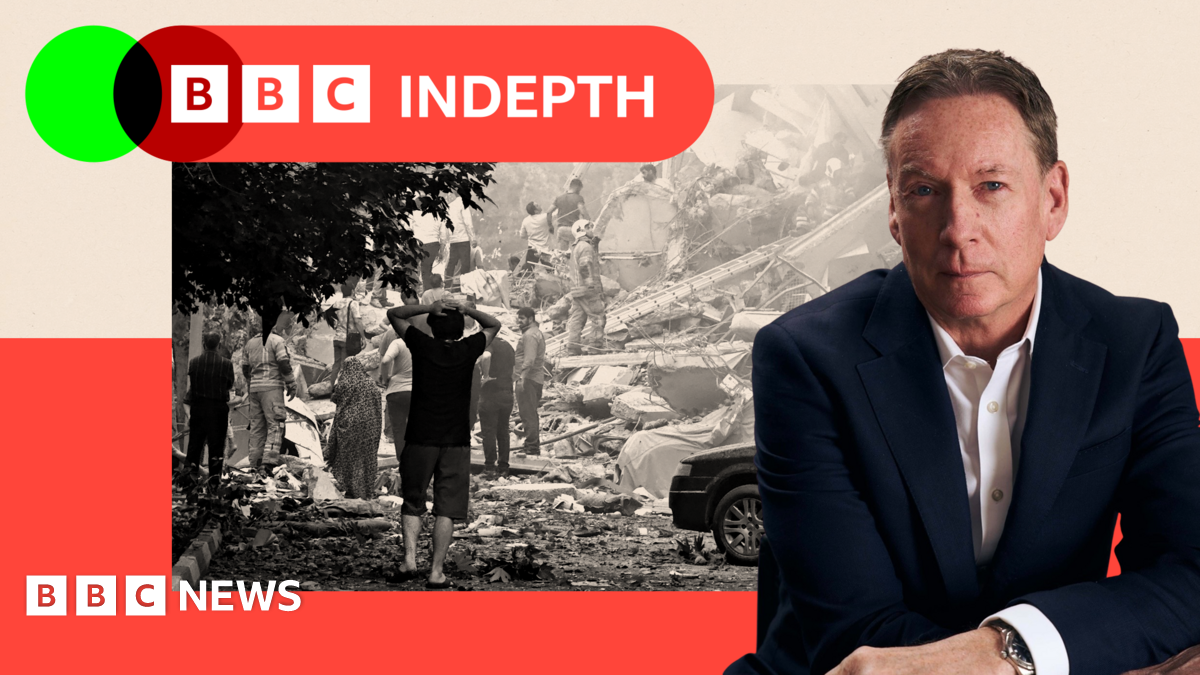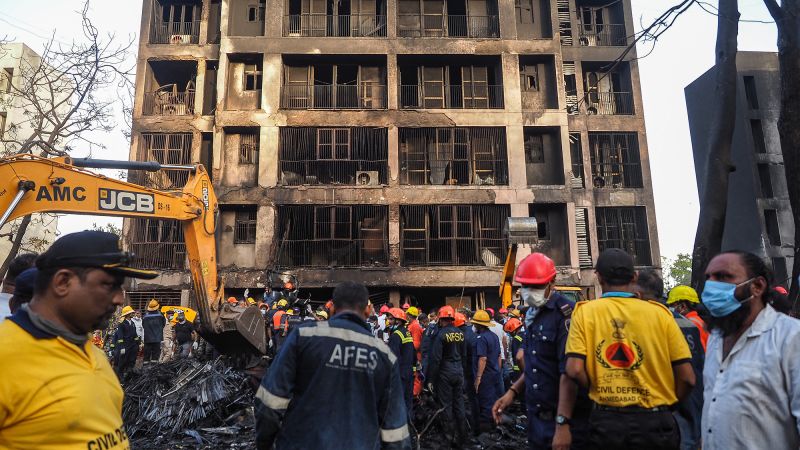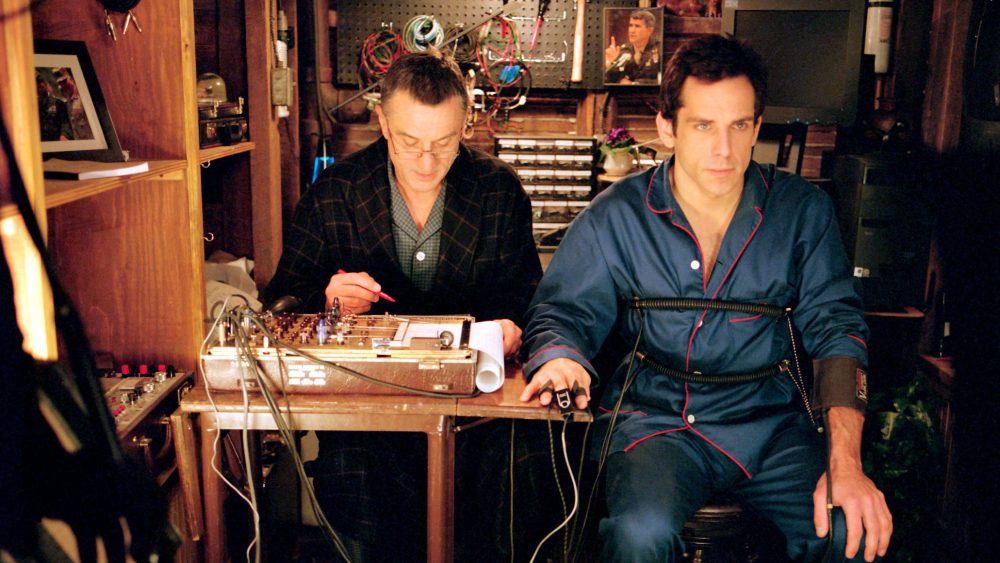Iran's Nuclear Program Under Threat: Examining Israel's Actions

Welcome to your ultimate source for breaking news, trending updates, and in-depth stories from around the world. Whether it's politics, technology, entertainment, sports, or lifestyle, we bring you real-time updates that keep you informed and ahead of the curve.
Our team works tirelessly to ensure you never miss a moment. From the latest developments in global events to the most talked-about topics on social media, our news platform is designed to deliver accurate and timely information, all in one place.
Stay in the know and join thousands of readers who trust us for reliable, up-to-date content. Explore our expertly curated articles and dive deeper into the stories that matter to you. Visit Best Website now and be part of the conversation. Don't miss out on the headlines that shape our world!
Table of Contents
Iran's Nuclear Program Under Threat: Examining Israel's Actions
Iran's nuclear program has long been a source of international tension, and recent events suggest the situation is escalating. Israel, a staunch opponent of a nuclear-armed Iran, has reportedly stepped up its covert actions against Iranian nuclear facilities, raising concerns about a potential regional conflict and the wider implications for global security. This article examines Israel's alleged role in disrupting Iran's nuclear ambitions and analyzes the potential consequences.
Israel's Shadow War: A History of Alleged Sabotage
For years, there have been reports of Israeli involvement in attacks targeting Iranian nuclear infrastructure. While Israel rarely publicly acknowledges such operations, intelligence reports and investigative journalism consistently link them to various incidents. These alleged actions range from targeted assassinations of Iranian nuclear scientists to sophisticated cyberattacks disrupting the enrichment process and sabotage of centrifuges at key facilities like Natanz and Fordow.
The alleged attacks are often described as a form of "shadow war," characterized by deniability and a calculated avoidance of direct military confrontation. This strategy allows Israel to pursue its objectives while minimizing the risk of a large-scale conflict. However, this approach also carries inherent risks, potentially escalating tensions and triggering unpredictable responses from Iran.
The Stakes are High: Potential Consequences of Escalation
The ongoing tension between Israel and Iran presents a complex and volatile situation. Several key factors contribute to the high stakes:
-
Regional Instability: Any major escalation could quickly destabilize the already fragile Middle East. Proxy conflicts and retaliatory actions could spill over into neighboring countries, creating a humanitarian crisis and further exacerbating regional tensions. [Link to article about Middle East instability]
-
Nuclear Proliferation: A disrupted Iranian nuclear program doesn't necessarily mean a halted program. Iran's pursuit of nuclear technology, whether for peaceful or military purposes, remains a significant concern for international security. Further disruptions could potentially push Iran to accelerate its program or seek alternative routes, increasing the risk of nuclear proliferation in the region.
-
International Relations: The international community is deeply divided on how to address the Iranian nuclear issue. While some nations advocate for diplomatic solutions and sanctions, others believe a stronger, more assertive approach is necessary. Israel's actions, even if successful in hindering Iran's program, often complicate diplomatic efforts and further strain international relations. [Link to article on international relations regarding Iran]
The Path Forward: Diplomacy vs. Covert Action
The ongoing debate centers around the effectiveness of different approaches to managing the threat of a nuclear-armed Iran. While covert actions may provide short-term gains, they also carry significant risks and ultimately may not address the underlying causes of the conflict. Many experts advocate for a renewed focus on diplomacy and negotiations, aiming for a comprehensive agreement that addresses Iran's nuclear ambitions while ensuring regional stability.
Conclusion: A Precarious Balance
Israel's alleged actions against Iran's nuclear program highlight the precarious balance in the Middle East. While Israel's security concerns are undeniable, the long-term consequences of its strategy remain uncertain. A sustained period of heightened tension carries the potential for catastrophic consequences. The international community must work towards finding a peaceful and sustainable solution, one that prioritizes dialogue and de-escalation over covert operations and the constant threat of military conflict. The need for a comprehensive diplomatic solution, supported by international pressure, remains paramount to prevent a further escalation of this dangerous situation.

Thank you for visiting our website, your trusted source for the latest updates and in-depth coverage on Iran's Nuclear Program Under Threat: Examining Israel's Actions. We're committed to keeping you informed with timely and accurate information to meet your curiosity and needs.
If you have any questions, suggestions, or feedback, we'd love to hear from you. Your insights are valuable to us and help us improve to serve you better. Feel free to reach out through our contact page.
Don't forget to bookmark our website and check back regularly for the latest headlines and trending topics. See you next time, and thank you for being part of our growing community!
Featured Posts
-
 Working Flashpoint Worlds Collide Codes June 2025
Jun 15, 2025
Working Flashpoint Worlds Collide Codes June 2025
Jun 15, 2025 -
 Expired And Valid Flashpoint Worlds Collide Codes June 2025 Update
Jun 15, 2025
Expired And Valid Flashpoint Worlds Collide Codes June 2025 Update
Jun 15, 2025 -
 Iran After The Israeli Attack Assessing The Damage And Future Risks
Jun 15, 2025
Iran After The Israeli Attack Assessing The Damage And Future Risks
Jun 15, 2025 -
 Black Box Data To Shed Light On Air India Flight Incident Experts Explain
Jun 15, 2025
Black Box Data To Shed Light On Air India Flight Incident Experts Explain
Jun 15, 2025 -
 Analisis El Impacto De La Ausencia De Rivero En La Alineacion De Barcelona Ante Manta
Jun 15, 2025
Analisis El Impacto De La Ausencia De Rivero En La Alineacion De Barcelona Ante Manta
Jun 15, 2025
Latest Posts
-
 Against All Odds Sole Survivor Speaks After Deadly India Plane Crash
Jun 15, 2025
Against All Odds Sole Survivor Speaks After Deadly India Plane Crash
Jun 15, 2025 -
 Exclusive Emily Simpson Weighs In On Tamra Judge And Gretchen Rossis Bitter Rivalry
Jun 15, 2025
Exclusive Emily Simpson Weighs In On Tamra Judge And Gretchen Rossis Bitter Rivalry
Jun 15, 2025 -
 A Look Back Robert De Niro And Ben Stillers Meet The Parents 25th Anniversary
Jun 15, 2025
A Look Back Robert De Niro And Ben Stillers Meet The Parents 25th Anniversary
Jun 15, 2025 -
 Striders Return And More Mlb Pitchers Injury Comebacks Analyzed
Jun 15, 2025
Striders Return And More Mlb Pitchers Injury Comebacks Analyzed
Jun 15, 2025 -
 Arkansas Vs Lsu College World Series Action Starts Saturday
Jun 15, 2025
Arkansas Vs Lsu College World Series Action Starts Saturday
Jun 15, 2025
